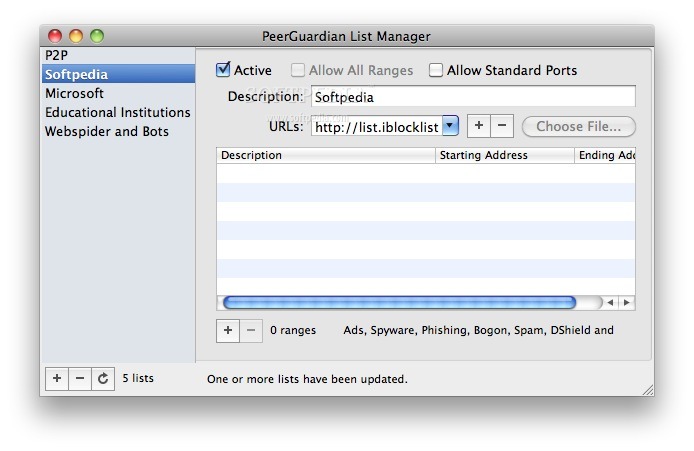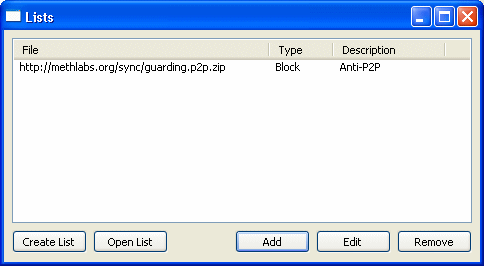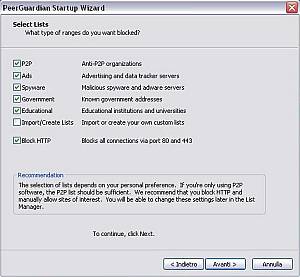

Documentation notes indicate that it delays starting until all other firewalls / ip_tables impacting services have. Seems to do exactly what it says to ip_tables - putting its rules in its own chains, and merely pre-pending those chains to everyone else’s.

Mind you, did now find ssh.anondist-orig, so making progress. still not sure why apt-get works and not aptitude.
#Peerguardian lists how to
Now if I can only figure out how to install it on the -gateway, e.g. On the surface, it seems simple - (additional) restrictions on traffic, or not, but I take your point that it may not be that simple. If each is confirmed generally, it feels like it is confirmed for all specific cases. (a) yes, chains processed packets in sequence without interfering with each other, and (b) the new player didn’t accept a packet with no further examination, passing a packet that whonix by itself wouldn’t have. It seems, though, that the tests should be relatively simple, vs the complex it could be with intermingled rules. So the interaction point is now only (and flow this chain too), not an inadvertent mingling of rules. Mind you … my quick read of the sf site shows that they are now putting their rules into their own chains. Increasing the possibility of tripping over each other. A question inherent to anything that plays with iptables - especially if you have multiple disparate iptables playing pieces, all unaware of each other. It could interfere with Whonix-Gateway’s firewall. Installing it on the gateway, I don’t know. Traffic is either being denied, or permitted - the browser doesn’t know why something is/n’t going through - i.e. ( ) How? The browser fingerprint is the browser (machine?) fingerprint. It would mess up your browser fingerprint. (Catch any/all/multiple clients with one install.)

I would not use it inside a VM that you also use for browsing.I was assuming application at -gateway. Assume that for the purposes of this discussion - my investigations to date have proven that (to me), but should it / I detect it behaves differently, I will post a followup. It merely fetches iplists and munges iptables to deny traffic (except that which one whitelists). Until someone did that, I recommend against installing it on the gateway. Gpg –keyserver would have to look closely how the package actually works to say. To add Moblock in your sources it is necessary:
#Peerguardian lists software
We strongly believe that the most efficient solution is to add the sources on your Software Sources (System – Administration – Software Sources) for Ubuntu Tweak:ġ – using Terminal, import the key sudo apt-key adv –recv-keys –keyserver FE85409EEAB40ECCB65740816AF0E1940624A220Ģ – import the source on the Software Sourcesģ – install Ubuntu Tweak (using Terminal) On the other side,Moblock is a powerful software to protect your privacy when you surf internet and it is based on a huge list of IP address which are not considered as friendly. Ubuntu Tweak is the most flexible graphical interface to configure desktop and system options on your Jaunty. We have read different websites on these topics but the best are the official ones that we advise you to visit them: Today, in our Linux Page (in Spanish) we posted a brief review about installing Ubuntu Tweak and Moblock on Ubuntu 9.04.


 0 kommentar(er)
0 kommentar(er)
